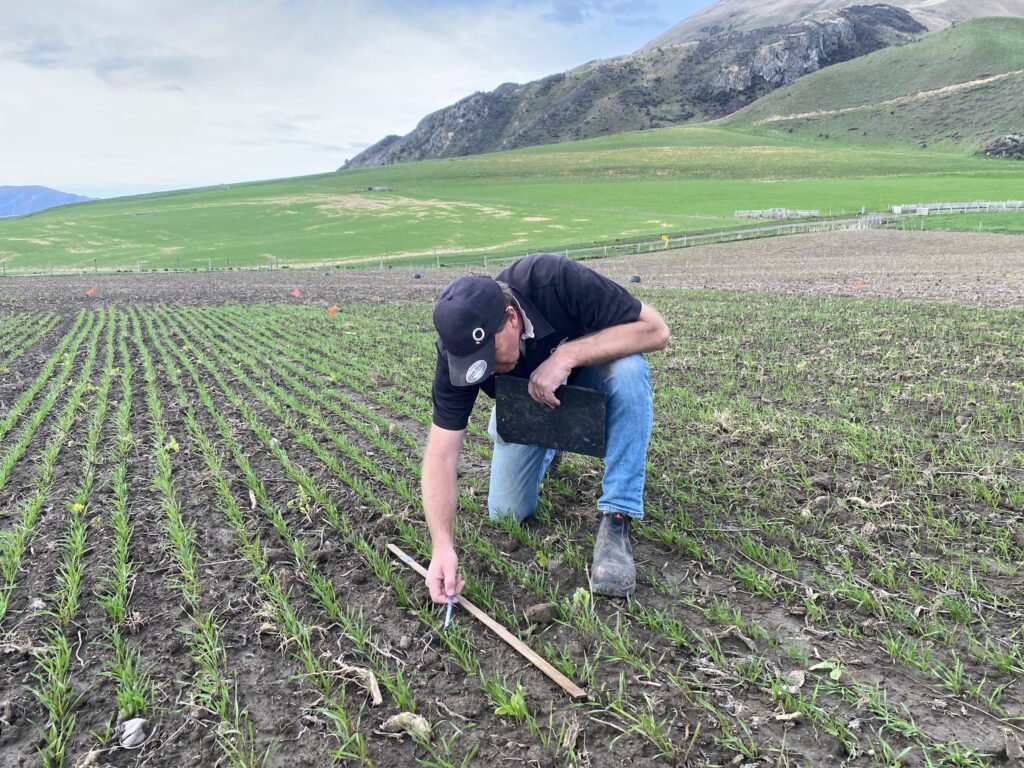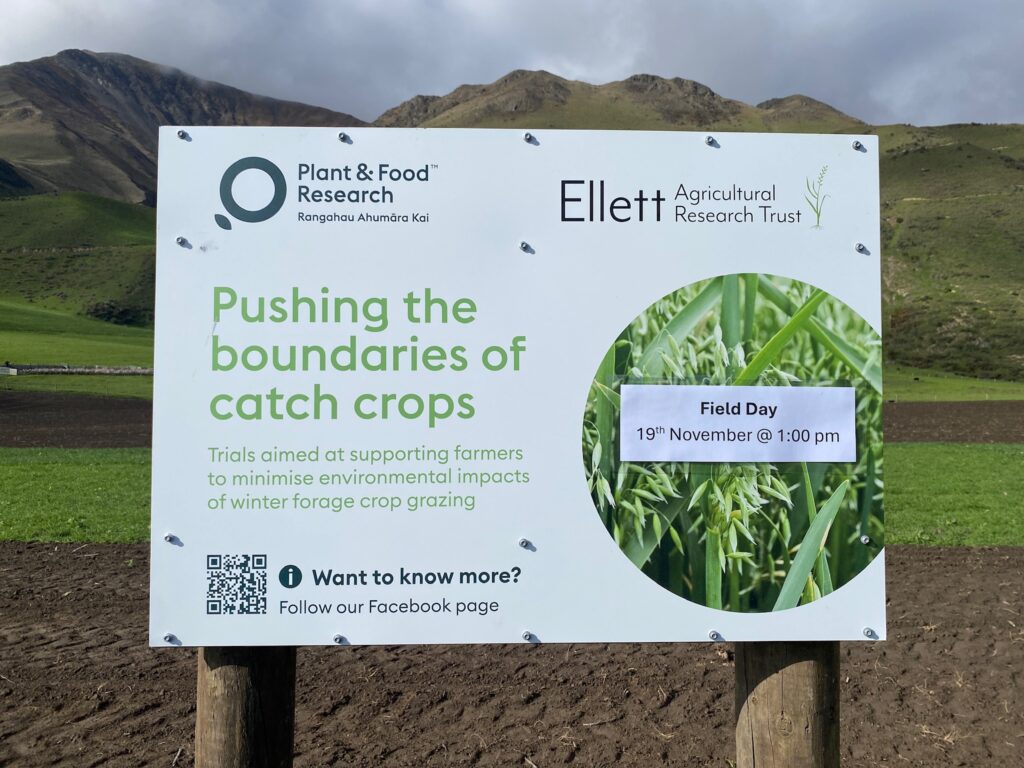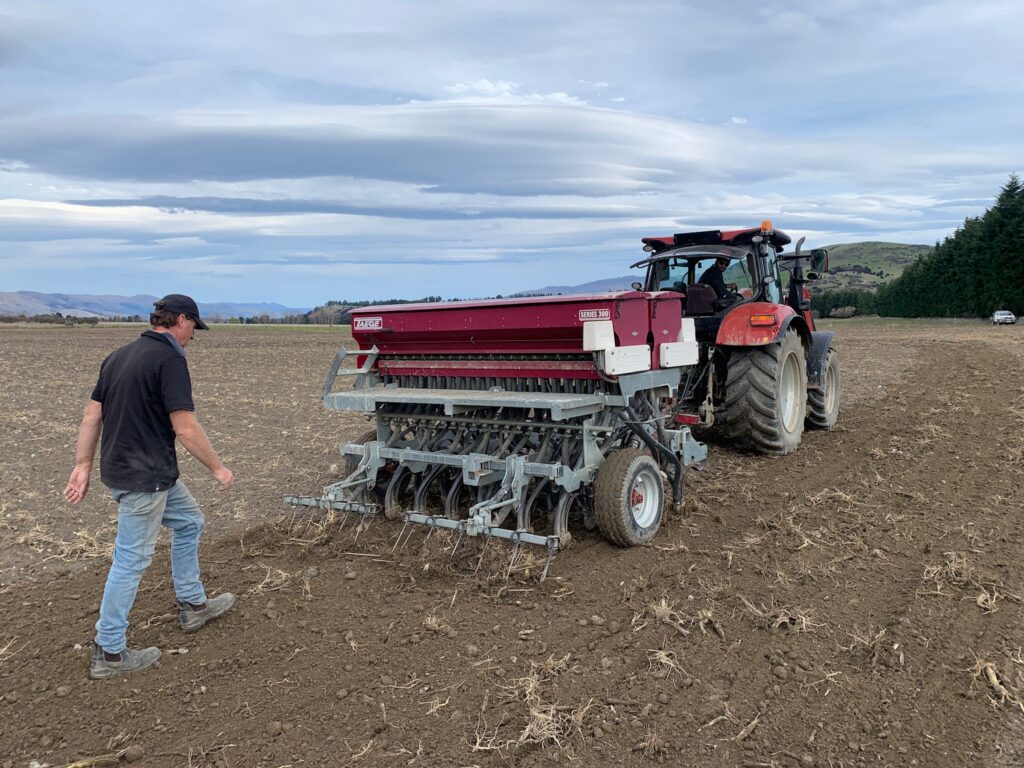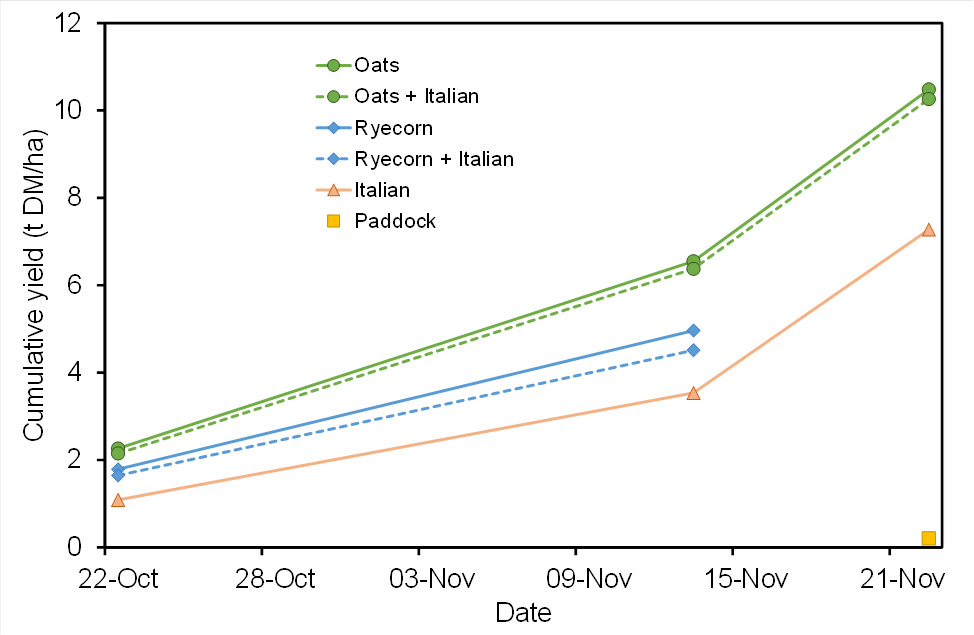A new project, with funding from the T R Ellett Agricultural Research Trust, has begun to research whether catch crops can be grown in particularly harsh winter conditions and what the benefit would be, not just to the environment but to the farmer’s back pocket too.
For many years researchers have been running experiments, researching how catch crops can reduce environmental impacts on-farm. This research has been important as winter grazing is a critical tool in many farm systems however there is a risk of contaminant loss to the environment and degradation of water quality. The historical results have been largely positive with analysis showing up to 60% reduction in nitrate leaching in animal urine patches and approximately 40% decrease in sediment runoff. The majority of that research has been done on the lowlands in Southland, the West Coast and Canterbury.
A team, led by Dr Brendon Malcolm at Plant and Food Research, with AgResearch as a partner, started new experiments in August 2024 with four new sites in areas chosen for their more extreme climatic conditions. These farms were sown with a mixture of species to understand whether the results on the lowlands could be replicated. The site up the Rakaia Gorge is 400 metres above sea level and the one at Ashburton Lakes, 700 metres. Two sites in Otago were also chosen in Middlemarch and Wanaka.



All farm sites were essentially treated the same, sown with different combinations of oats, ryecorn and Italian ryegrass, however the Middlemarch site was also planted with barley, and cultivation vs direct drilling treatments were test at Ashburton Lakes. Large strips of approximately 4 metres wide by 40 metres long were planted for the trials.
With only a few month’s worth of data and analysis so far, the yield results have been very pleasing for the research team. Even in Wanaka where it was an exceptionally wet spring last year, the oat catch crops at the “booting” stage were harvesting at 4.5 tonne to the hectare. At the other extreme, the trial at Rakaia Gorge produced over 10 tonne (see graph on the right of results). Important background information on all farms have been measured and recorded too, such as soil profiles both prior to sowing and later in the season once the crops were established.

Field days at each site occurred over late November 2024 to showcase to around 60 farmers and rural professionals the early insights from the research.
“We wanted to keep the field days relatively small and intimate for the first viewing of the outcomes so that we could really dig deep into the discussions with the farmers and rural professionals”, Dr Malcolm said. “Once we have more data and analysis we want to share the results with more farmers so they can consider whether catch crops may work as part of their system, even in relatively harsh climatic conditions”.
Part of this project is also the chance for the team to work more closely with their internal communications staff, which is enabling the research team to take more ownership of the content on their social media channels and the writing up and dissemination of the research.
Dr Malcolm explains that as researchers they are up-skilling in how they communicate their science with a broader audience and how they translate the research so it is accessible for farmers and rural professionals. They also want to be more transparent in their research while they are still experimenting, not just providing insights at the end of the project.
“An example would be where we are using video content taken out in the field by our team and turning these into short snappy videos when we get back to the office and uploading them to social media. We know that ensuring our information is easy to understand is critical for success so we are taking much more ownership of creating easy to understand content”.
The research team have also been using WhatsApp groups to get real time information out to their communities of interest. This has been very successful as it is a more intimate and a relatively informal platform that allows farmers to ask questions, post photos and get feedback from the community really quickly.
Dr Malcolm explains that “without the funding from the T R Ellett Agricultural Research Trust, this project would simply not have happened. The research has really pushed the boundaries of what they thought was possible in terms of the kind of terrain and climatic conditions that would yield decent catch crops.”
He goes on to say that “We want it to be a win-win, for both the environment and the farmers and early results suggest that it can be. We are looking forward to doing another round of experimentation this year in winter/spring so that we can really ground-truth what we are saying to farmers who can then have the confidence to consider it for their own farm systems.”
